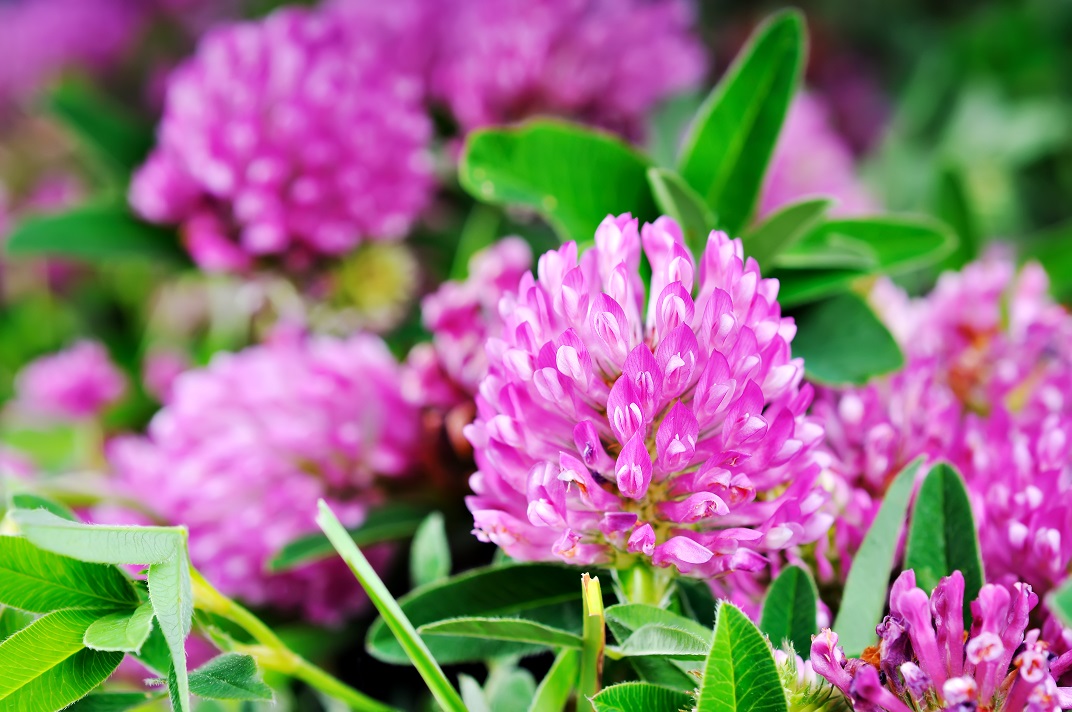Phytoestrogens: Yes or No?
In the field of nutrition, few subjects are more controversial than this one. Everyone
has their own opinion: Some say it prevents certain types of cancers, others that
they aggravate or even cause cancer. The purpose of this article is to reveal the
truth about various claims and theories, based on current knowledge and research.
What Are They?
Phytoestrogens are plant-sourced compounds having an affinity for estrogenic
receptors in the human body. These molecules are ubiquitous in the world of plants.
They have started becoming popular when women started looking for alternatives to
synthetic hormones and, more importantly, since epidemiological evidence displayed
soybean consumption to reduce or completely alleviate symptoms of menopause in
Asian women, especially in Japan.
Sources of Phytoestrogens
Although scientific studies focused mostly on soybeans, all legumes contain
phytoestrogens. Here are some good food sources of phytoestrogens.
- Soybean (Glycine max)
- Red clover (Trifolium pratense)
- Flaxseed (Linum usitatissimum)
- Black cohosh (Actea racemosa)
- Hops (Humulus lupulus)
- Yarrow (Achillea millefolium)
- Carrot (Daucus carota)
Foods have an estrogen impact on our health, which depends on several factors:
- Estrogenic power of molecules;
- Concentration of molecules;
- Possible synergy between these molecules;
- Amount of food consumed;
- Possible synergy of several foods or medicinal plants; and
- Metabolism and intestinal flora of the person.
These factors explain the variability of estrogen’s effects on a person. In fact,
controversial research comes from in vitro studies (in an artificial environment
like a test tube) carried out on an isolated molecule, not complete food.
Indications
Soy has plenty of benefits. It is used to relieve symptoms of menopause,
decrease risks of heart disease, prevent osteoporosis, and even prevent some
types of cancer.
Menopause
Soy
The most popular therapeutic use of soy is certainly the improvement of symptoms
of menopause. However, menopause is not the best-documented indication. Soy’s
efficiency for alleviating the symptoms of menopause is still controversial.
We do know, however, that supplements rich in isoflavones (phytoestrogens found
in soybeans, among others) are more effective for symptoms (hot flashes), while
whole foods are more effective in preventing complications (osteoporosis and
cardiovascular).
Red Clover
Red clover contains the same isoflavones as soybeans. Clinical studies show an
improvement of menopausal symptoms, an improvement in vaginal health, and
an improvement of symptoms of anxiety and depression. Furthermore, red clover
is good for women with breast cancer.
Interaction Between Phytoestrogens and Estrogens?
Several authors mention a potential interaction between isoflavones and estrogens.
According to them, isoflavones could cause an excessive increase in estrogenic
effect. However, this suspicion does not seem founded, because the most powerful
phytoestrogen (genistein) actually has 0.1% of the power of estradiol.
Osteoporosis
Regular soy consumption seems to be associated with increased bone density in
the hips and spine. However, this increase is only noted in postmenopausal and
nonpremenopausal women. Soybeans also appear to prevent bone resorption.
Cardiovascular
The most supported indication of soybeans and legumes is the prevention and
control of risk factors of heart diseases. The majority of clinical data shows a
reduction in total cholesterol and LDL cholesterol (bad cholesterol), and an
increase in HDL cholesterol (good cholesterol). These results come from clinical
studies performed on both men and women.
Soybeans and Men
Looking at males is also necessary for a better understanding of the effects of soy
consumption. Indeed, if phytoestrogens were estrogen like estradiol is, their effects
on male hormones and fertility would be unquestionable. However, soy
consumption does not appear to be harmful to men. In one study, no negative
effects were found on hormone levels or on the quality of seminal fluid, despite
high doses (up to 70 mg per day) of soy isoflavones.
At the epidemiological level, Japanese men suffer less from prostate cancer
than North Americans. The prevalence per 100,000 men is 157.4 for
Canadians,149.5 for Americans, and only 90.0 for Japanese. Once again,
soybeans are involved. They have a chemoprotective effect, and they
partially inhibit the enzyme that converts testosterone into a more potent
hormone (dihydrotestosterone or DHT) in prostate cells.
Cancer
The controversy around phytoestrogens focuses on their safety in people with a
history of cancer. One question keeps coming back: Can soybeans increase the
risk of breast cancer?
Soybean and its isoflavones are not contraindicated in case of cancer. In fact, the
consumption of 65 to 132 mg of soy isoflavones increases the concentration of
a metabolite that actually protects against cancer (2-hydroxyestrone).
Until today, the majority of epidemiological and clinical studies have shown that
soy consumption has a preventive effect on cancer, particularly breast and colon
cancers. The preventive effect of soybeans occurs before menopause. No
studies have shown a significant preventive effect after menopause.
Dietary soy consumption appears to reduce circulating hormone levels, which
could explain why dietary soy would be more effective in preventing cancer in
pre-menopausal women than in postmenopausal women. This is due to
isoflavones and other soybean compounds, such as fibre and protein. Indeed,
dietary soy is much more complex than the sum of its isolated isoflavones.
It should be noted that the average North American woman consumes about
3 mg per day of isoflavones, while Asian women consume 15–30 mg. The
Bay Area Breast Cancer Study found no connection between soy consumption
and an increase in breast cancer incidence among Californian women. In the
same area, researchers have found a connection between soy consumption
and a decreased risk of thyroid cancer.
Other researchers have focused their studies on urinary tract cancers. In
these cases, soy seems to have a preventive effect by increasing apoptosis
(programmed cell death) and altering angiogenesis (the process of blood-
vessel formation).

Isoflavones’ Mechanisms of Action
Several possible mechanisms of action may explain the effects of isoflavones.
It is important to know that many studies have focused on the consumption
of soy foods rather than purified isoflavones.
Mechanisms of action include:
- Inhibition of the protein tyrosine kinase (PTK) enzyme;
- Binding with estrogen receptors;
- Inhibition of production of reactive oxygen species;
- Induction of apoptosis by breakage of DNA segments;
- Inhibition of angiogenesis;
- Modulation of steroid binding proteins;
- Inhibition of the enzyme 5-alpha-reductase;
- Inhibition of sulfation by P-form phenol-sulfotransferase (PST);
- Inhibition of thrombin formation and platelet activation; and
- Increased LDL receptor activity.
Flaxseed
There is significantly less scientific literature about flax than about soy. Flaxseed
does not contain the same phytoestrogens as soybeans. Its lignans have
beneficial effects on hormonal metabolism and reduce the risk of hormone-
dependent cancers. Flaxseed is also used to prevent cardiovascular diseases
and metabolic syndrome (diabetes, etc.). In addition, flax provides omega-3
essential fatty acids and soluble fibre. Consumption of ground flaxseed also
improves lipid profiles. It is also important to know that its beneficial effects do
not disappear when cooked in foods such as bread. In short, flax is an
interesting food used for preventing cancer and heart disease.
Conclusion
Although studies have focused on soybeans and isoflavones, phytoestrogens
are found in many foods. The benefits of foods containing these molecules are
undeniable, and no risk to health has been demonstrated. In addition, a meta-
analysis of many clinical studies concludes that phytoestrogens do not worsen
hormone-dependent cancers.
 Jean-Yves Dionne
Jean-Yves Dionne
A pharmacist, trainer, clinical consultant, and scientific
advisor in natural health products. He also teaches at
the Université de Montréal and at Université de Laval.

 Stores
Stores